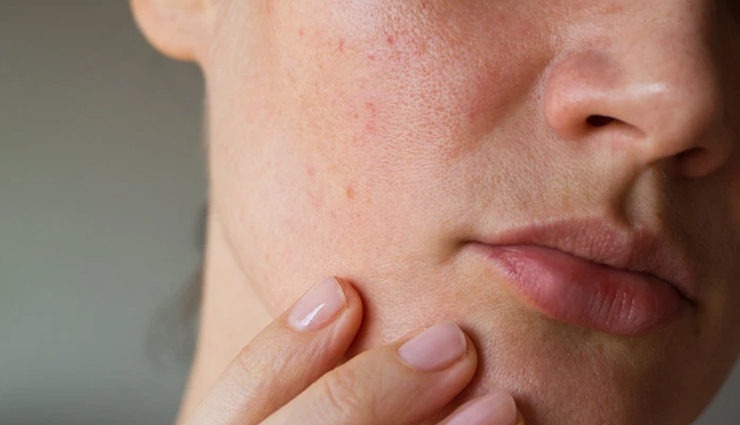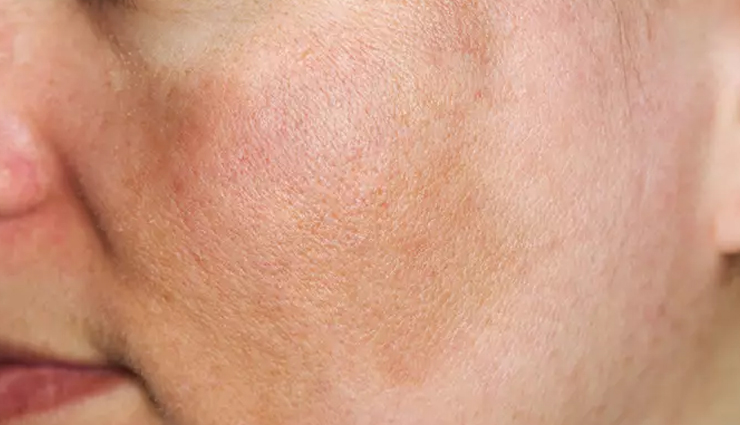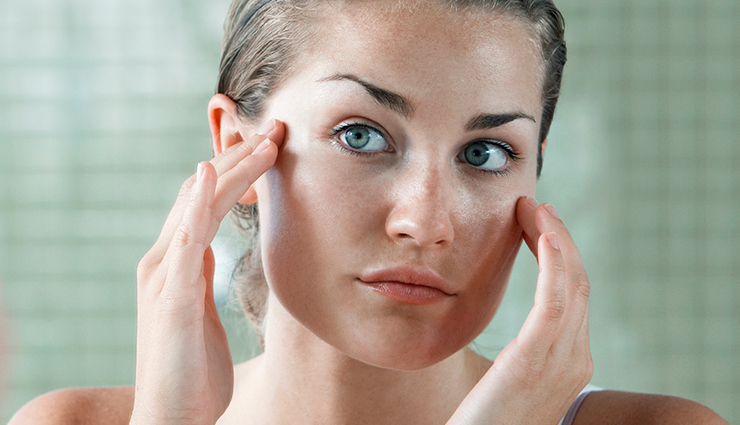Be Aware Of These Side Effects Of Lemon Juice On Your Skin
By: Priyanka Maheshwari Wed, 26 Apr 2023 8:31:33

Lemon juice is a common natural remedy for a variety of skin conditions such as acne, dark spots, and hyperpigmentation. However, like any other substance, lemon juice can also have side effects on the skin. In this article, we will explore some of the potential side effects of using lemon juice on the skin.

Dryness and Irritation
Lemon juice has a high acidic content, which can cause dryness and irritation on the skin. The main reason why lemon juice can cause dryness and irritation is due to its high acidic content. The acid in the lemon juice can disrupt the natural pH balance of the skin, leading to dryness and flakiness. When the skin is too dry, it can become more vulnerable to irritation, redness, and even cracking.
In addition to its acidic content, lemon juice can also contain other compounds that can further irritate the skin. For example, some people may be allergic to the compounds found in lemon juice, which can cause redness, itching, and swelling.
To prevent dryness and irritation from lemon juice, it is important to use it in moderation and to dilute it with water or other ingredients such as honey or yogurt. Applying a moisturizer after using lemon juice can also help to keep the skin hydrated and prevent dryness.

Sun Sensitivity
Lemon juice can cause sun sensitivity, which means that your skin becomes more vulnerable to the sun's UV rays. This is because lemon juice contains a compound called psoralen, which can make your skin more sensitive to sunlight.
Psoralen is a natural substance found in many plants, including lemons. When psoralen comes into contact with sunlight, it can cause a reaction in the skin that leads to sun sensitivity. This can increase your risk of sunburn, skin damage, and even skin cancer.
Using lemon juice on your skin can also make it more prone to sunburn and sun damage. This is because lemon juice can cause the skin to become more acidic, which can further damage the skin's natural barrier and increase its vulnerability to UV rays.
To prevent sun sensitivity from lemon juice, it is recommended to avoid direct sunlight or use a sunscreen with high SPF. You should also wait for the lemon juice to dry on your skin before going outside, as wet skin is more vulnerable to sun damage.
It is also important to note that sun sensitivity can occur even if you don't apply lemon juice directly to your skin. Consuming large amounts of lemon or other citrus fruits can also make your skin more sensitive to sunlight, as psoralen can be present in the juice or pulp of these fruits.
If you plan on using lemon juice on your skin, it is important to take precautions to protect your skin from the sun.

Discoloration
Lemon juice has natural bleaching properties, which can help to lighten dark spots and hyperpigmentation on the skin. However, using lemon juice on the skin regularly can also cause discoloration or lightening of the skin, especially if it is not diluted properly or left on the skin for too long.
The main reason why lemon juice can cause skin discoloration is due to its acidic content. The acid in the lemon juice can penetrate the skin and break down melanin, which is the pigment that gives the skin its color. This can lead to a lightening or bleaching effect on the skin, which can be uneven or patchy in some cases.
In addition to its acidic content, lemon juice can also contain other compounds that can further increase skin discoloration. For example, exposure to sunlight after applying lemon juice can increase the risk of skin discoloration, as the UV rays can further break down the melanin in the skin.
To prevent skin discoloration from lemon juice, it is important to dilute it with water or other ingredients such as honey or yogurt. Applying the mixture to the skin for only a few minutes at a time can also help to minimize the risk of discoloration.

Increased Oil Production
Lemon juice on the skin can also cause increased oil production, especially if it is not diluted properly or used too frequently. The main reason why lemon juice can cause increased oil production is due to its acidic content. The acid in the lemon juice can disrupt the natural pH balance of the skin, which can trigger the skin's oil glands to produce more oil to compensate for the dryness.
In addition to its acidic content, lemon juice can also strip the skin of its natural oils, which can cause the skin to produce more oil to compensate for the dryness. This can lead to a cycle of increased oil production, which can make the skin more oily and prone to breakouts.
To prevent increased oil production from lemon juice, it is important to dilute it with water or other ingredients such as honey or yogurt. Applying the mixture to the skin for only a few minutes at a time can also help to minimize the risk of oil buildup.

Allergic Reactions
Lemon juice can cause allergic reactions in some people. Allergic reactions to lemon juice on the skin can range from mild to severe and can cause a variety of symptoms.
The main reason why lemon juice can cause allergic reactions is due to its natural compounds, including limonene and citral. These compounds can irritate the skin and trigger an allergic reaction in some people.
Symptoms of an allergic reaction to lemon juice on the skin can include itching, redness, swelling, rash, and hives. In severe cases, an allergic reaction can cause difficulty breathing, swelling of the face and throat, and even anaphylaxis, which is a potentially life-threatening reaction.
To prevent allergic reactions to lemon juice, it is recommended to do a patch test before using it on the skin. This involves applying a small amount of the diluted lemon juice mixture to a small area of the skin and waiting for 24 hours to see if there is any reaction.
Final Thoughts
While lemon juice can be an effective natural remedy for certain skin conditions, it is important to be aware of its potential side effects. If you plan on using lemon juice on your skin, it is important to use it in moderation and to do a patch test before applying it to your face. If you experience any adverse reactions, stop using lemon juice immediately and consult a dermatologist.





